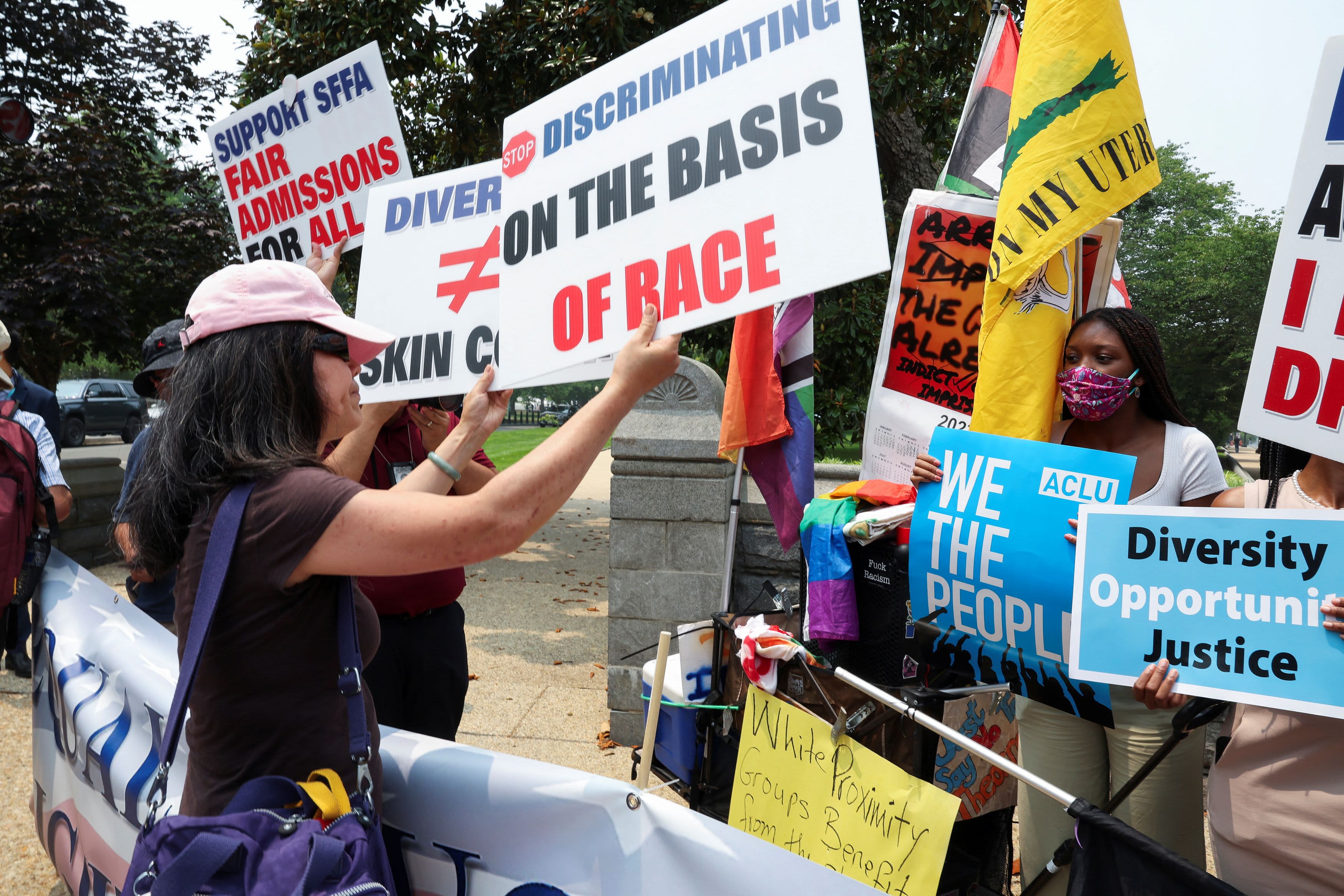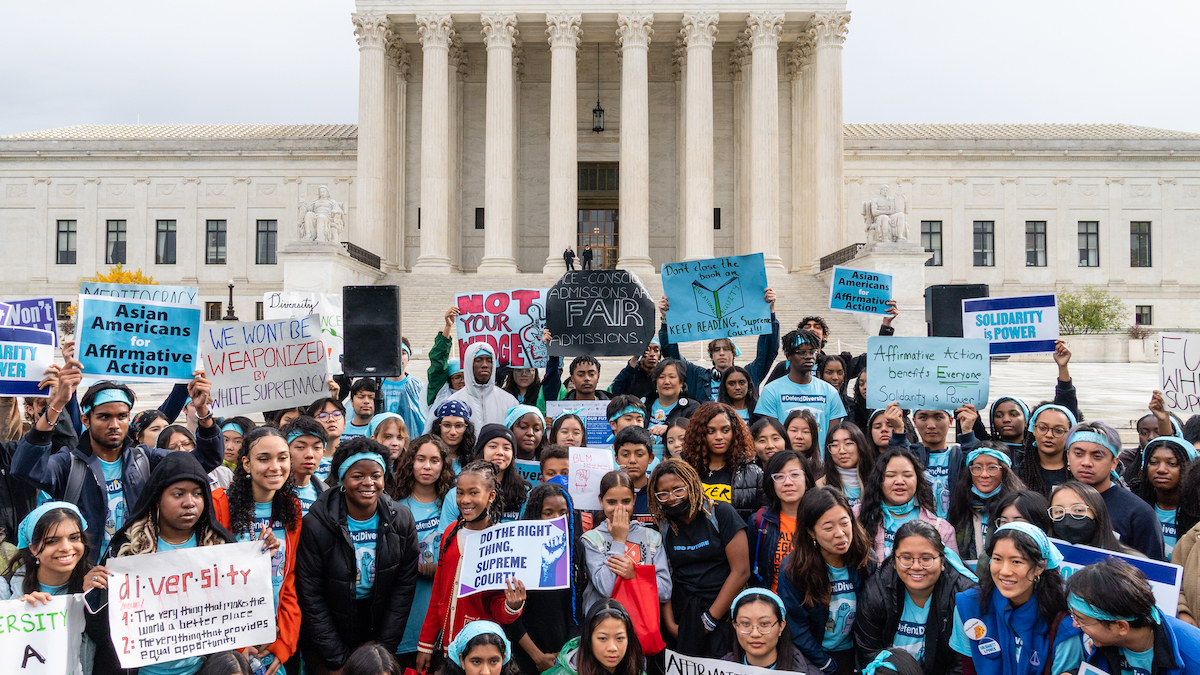The U.S. Supreme Court's decision on affirmative action represents a sea change in college admissions and garnered reactions from across the world of higher education and politics.
The leadership of Harvard, one of the two universities that was being sued in the case, issued a statement reaffirming its commitment to having a body of students who "reflect, and have lived, multiple facets of human experience."
WATCH ANYTIME FOR FREE
>Stream NBC10 Boston news for free, 24/7, wherever you are. |
"For almost a decade, Harvard has vigorously defended an admissions system that, as two federal courts ruled, fully complied with longstanding precedent. In the weeks and months ahead, drawing on the talent and expertise of our Harvard community, we will determine how to preserve, consistent with the Court’s new precedent, our essential values," the statement said.
Get updates on what's happening in Boston to your inbox. Sign up for our >News Headlines newsletter.
The decision will "change how we recruit, how we do our jobs, who are the students we bring to campus," Wellesley College Dean of Admissions Peaches Valdes told NBC10 Boston Thursday.
The school had filed a brief in the case supporting affirmative action; race had been just one factor considered in bringing a diverse body of students to Wellesley.
"I also find some hope in the fact that the court didn't expressly say this needs to be a completely race-blind process," said Boston attorney Maddy Rodriguez, who filed a brief in the Harvard case.
She says students will still be able to discuss their racial identity within their applications, but the Supreme Court's decision is still profound.
"We're going to see at least in the immediate after effects of this decision a drop-off in the number of under-represented students, students from certain minority backgrounds," said Rodriguez, a partner at the law firm Foley Hoag.
Massachusetts Gov. Maura Healey and her administration released a statement signed by dozens of other local leaders, institutions of higher learning, and advocacy groups that called the ruling disappointing.
The statement, which touts Massachusetts' history of having the first public school and first university, said that the state will continue its commitment to historically underrepresented students, including students of color. It's in stark contrast, though, to the response by the governor of Granite State, just over the border.
Here is the full, joint statement from the Healey-Driscoll administration:
“Massachusetts will always be welcoming and inclusive of students of color and students historically underrepresented in higher education. Today’s Supreme Court decision overturns decades of settled law. In the Commonwealth, our values and our commitment to progress and continued representation in education remain unshakable.
We will continue to break down barriers to higher education so that all students see themselves represented in both our public and private campus communities. Massachusetts, the home of the first public school and first university, will lead the way in championing access, equity, and inclusion in education.
We want to make sure that students of color, LGBTQ+ students, first generation students, and all students historically underrepresented in higher education feel welcomed and valued at our colleges and universities. Today’s decision, while disappointing, will not change our commitment to these students. We have an imperative to make sure our schools reflect our communities. Our academic competitiveness, the future of our workforce, and our commitment to equity demand we take action.”
The Supreme Court on Thursday released its decision striking down affirmative action, marking an end to schools' ability to consider race in their admissions process.
A growing number of New England politicians are voicing their view on the decision, including Sen. Ed Markey, who was critical of it.
New Hampshire Gov. Chris Sununu, meanwhile, applauded Thursday's news out of Washington D.C.
"New Hampshire banned affirmative action in higher education over a decade ago, and I am glad to see the Supreme Court follow our lead," Gov. Sununu said on Twitter.
The Boston Teachers Union characterized the decision as "terrible."
"This misguided ruling undermines our commitment to equity and inclusivity in education, which is the engine of growth and opportunity in our country," the union and its president, Jessica Tang, wrote in a news release.
Former President and first lady Barack and Michelle Obama — both alumni of Harvard Law School — each released statements following the decision to overturn affirmative action.
"So today, my heart breaks for any young person out there who’s wondering what their future holds — and what kinds of chances will be open to them," Mrs. Obama wrote. "Today is a reminder that we've got to do the work not just to enact policies that reflect our values of equity and fairness, but to truly make those values real in all of our schools, workplaces, and neighborhoods."
The former president said that while affirmative action wasn't perfect, "it allowed generations of students like Michelle and me to prove we belonged."
"Now it’s up to all of us to give young people the opportunities they deserve — and help students everywhere benefit from new perspectives," Obama's statement said.



